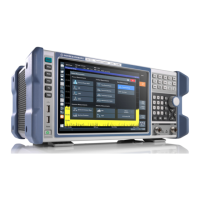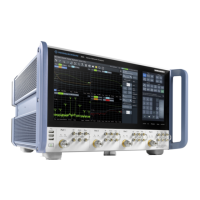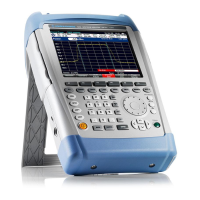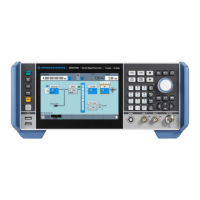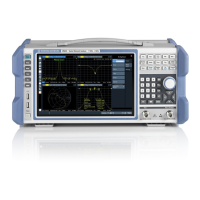Cable TV Measurements (Option K20) R&S FSL
1300.2519.12 2.96 E-11
Fig. 2-68 Digital Channel table "EXAMPLE WIPFING''
We now have sucessfully finished the creation of the channel table "EXAMPLE WIPFING''. Please refer
to section Performing a Measurement without a Channel Table to learn more about measurements
based on a channel table.
Example: Restoring the default channel tables
The Cable TV Measurements option brings several channel tables with it:
The typical frequency plans used in different countries, e.g.
TV–CHINA
TV–EUROPE
TV–USA–CATV
etc…
Example channel tables (see Example: Creating a channel table), e.g.
RS_EXAMPLE_BAVARIA
RS_EXAMPLE_WIPFING
If you have modified or deleted one of these channel tables, you can restore them in the following way:
1. Press the MENU key.
2. Press the Channel Setup softkey.
3. Press the Restore Default Tables softkey.
Only missing channel tables will be restored. If you want to replace an existing channel table by its
default channel table, you have to delete it before.
Performing a Measurement without a Channel Table
The Cable TV Measurements option intends to help network engineers. Network engineers will onces
create a channel table, and then use it to visit many, many test points, all located in the same cable TV
network. If you are a network engineer please see section Performing a Measurement Using a Channel
Table. If you work in R&D or you do not have a cable TV network at all (all you have is a single TV
transmitter or a frequency where you want to do a measurement ignoring any signals apart), this
section describes how to setup an analog TV Spectrum measurement without a channel table.
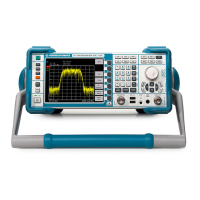
